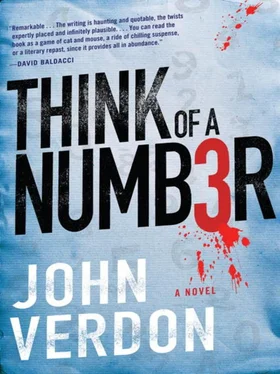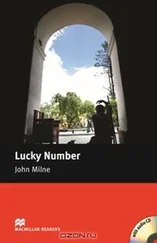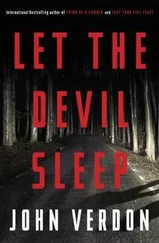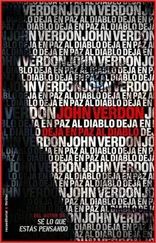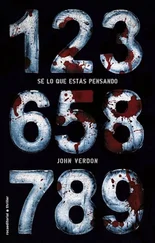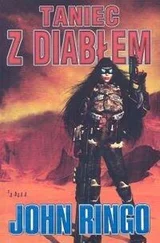“But it’s not really solid. If I were playing devil’s advocate here, I’d have to point out that your wife didn’t actually see the flower-the plastic flower-you were describing to her. Suppose it’s not a peony at all. Where are we then? Even if it is a peony, it’s not exactly proof of anything. God knows it’s not the kind of breakthrough I could stand up and talk about at a press conference. Christ, why couldn’t it be a real flower, so there’d be less doubt about what it was? Why plastic?”
“That bothered me, too,” said Gurney, trying to conceal his irritation at Kline’s reaction. “Why not a real one? A few minutes ago, I asked my wife about it, and she told me that florists don’t like to sell peonies. It has a top-heavy bloom that won’t remain upright on its stem. They’re available in nurseries for planting, but not at this time of year. So a plastic one might be the only way he could send us his little message. I’m thinking it was an opportunistic thing-he saw it in a store and was struck by the idea, by the playfulness of it.”
“Playfulness?”
“He’s taunting us, testing us, playing a game with us. Remember the note he left on Mellery’s body-come and get me if you can. That’s what the backwards footprints were all about. This maniac is dangling messages in front of our faces, and they all say the same thing: ‘Chase me, chase me, betcha can’t catch me!’”
“Okay, I get it, I see what you’re saying. You may be right. But there’s no way I can publicly connect these cases based on one guy’s guess about the meaning of a plastic flower. Get me something real-ASAP.”
After he hung up the phone, Gurney sat by the den window gazing out at the late-afternoon gloom. Suppose, as Kline had conjectured, the flower wasn’t a peony after all. Gurney was shocked to realize how fragile his new “link” was-and how much confidence he’d had in it. Overlooking the glaring flaw in a theory was a sure sign of excessive emotional attachment to it. How many times had he made that point to the criminology students in the course he taught at the state university, and here he was blundering into the same trap. It was depressing.
The dead ends of the day ran around in his head in a fatiguing loop for maybe half an hour, maybe longer.
“Why are you sitting in there in the dark?”
He swiveled in his chair and saw Madeleine silhouetted in the doorway.
“Kline wants connections more tangible than a debatable peony,” he said. “I gave the Bronx guy a few places to look. Hopefully he’ll come up with something.”
“You sound doubtful.”
“Well, on the one hand, we have the peony, or at least what we think is a peony. On the other hand, we have the difficulty of imagining the Ruddens and the Mellerys being connected to each other in any way. If ever there were people who lived in different worlds…”
“What if it’s a serial killer and there are no connections?”
“Even serial killers aren’t random killers. Their victims tend to have something in common-all blondes, all Asians, all gays-some characteristic with special meaning for the killer. So even if Mellery and Rudden were never directly involved in anything together, we’d still be looking for some common ground or similarity between them.”
“What if…” Madeleine began, but the ringing of the phone interrupted her.
It was Randy Clamm.
“Sorry to bother you, sir, but I thought you’d like to know you were right. I took a drive over to see the widow, and I asked that question just like you said I should-sort of matter-of-fact. All I said was, ‘Can I have the whiskey bottle that you found?’ I didn’t even have to bring the Lord into it. I’ll be damned if she didn’t say, just as matter-of-factly as myself, ‘It’s in the garbage.’ So we go out in the kitchen and there it is, sitting there in the garbage pail, a broken Four Roses bottle. I’m staring at it, speechless. Not that I was surprised that you were right-don’t get me wrong-but, Jesus, I didn’t expect it to be so easy. So damn obvious. As soon as I collect my thoughts, I ask her to show me exactly where she’d found it. But then the whole situation suddenly catches up with her-maybe because now I’m not sounding so casual-and she looks very upset. I tell her to relax, don’t worry about it, could she just tell me where it was, because that would be really helpful to us, and maybe, like, you know, would she mind telling me why the hell she moved it. I didn’t put it that way, of course, but that’s what I’m thinking. So she looks at me, and you know what she says? She says Albert’s been so good about the drinking problem, he didn’t have a drink for almost a year. He’s going to AA, he’s doing great-and when she sees the bottle, which was on the floor next to him, next to the plastic flower, the first thing she thinks is that he started drinking again and fell on the bottle, and it cut his throat, and that’s how he died. It doesn’t immediately occur to her that he’s been murdered-it doesn’t even cross her mind until the cops come and they start talking about it. But before they come, she hides the bottle because she’s thinking it’s his bottle, and she doesn’t want anyone to know he had a relapse.”
“And even after it sank into her head that he was killed, she still didn’t want anyone to know about the bottle?”
“No. Because she still thinks it was his bottle and she doesn’t want anyone to know he was drinking, especially his nice new friends from AA.”
“Jesus Christ.”
“So the whole thing turns out to be a pathetic mess. On the other hand, you got your proof that the murders are connected.”
Clamm was upset, full of the conflicted feelings that Gurney was all too familiar with-the feelings that made being a good cop so hard, so ultimately wearying.
“You did a great job there, Randy.”
“Just did what you told me to do,” said Clamm in his rapid, agitated way. “After securing the bottle, I called for the evidence team to make a return visit, go over the whole house for letters, notes, anything. I asked Mrs. Rudden for their checkbook. You mentioned that to me this morning. She gave it to me, but she didn’t know anything about it-handled it like it might be radioactive, said Albert took care of all the bills. Said she doesn’t like checks because there are numbers on them, and you got to be careful about numbers, numbers can be evil-some crap about Satan, crazy religious bullshit. Anyway, I took a look through the checkbook, and the bottom line on that is it’s going to take more time to figure it out. Albert might have paid the bills, but he wasn’t much of a record keeper. There was no reference on any of the check stubs to anyone named Arybdis or Charybdis or Scylla-that’s what I looked for first-but that doesn’t mean much, because most of the stubs had no names, just amounts, and some of them didn’t even have that. As for monthly statements, she had no idea if there were any in the house, but we’ll do a thorough search, and we’ll get her permission to get photostats from the bank. In the meantime, now that we know we’re holding two corners of the same triangle, is there anything else you want to share with me about the Mellery murder?”
Gurney thought about it. “The series of threats Mellery received prior to his murder included vague references to things he did when he was drunk. Now it turns out that Rudden had drinking problems, too.”
“You saying we’re looking for a guy who’s running around knocking off drunks?”
“Not exactly. If that’s all he wanted to do, there’d be easier ways to do it.”
“Like toss a bomb into an AA meeting?”
“Something simple. Something that would maximize his opportunity and minimize his risk. But this guy’s approach is complicated and inconvenient. Nothing easy or direct about it. Any part of it you look at raises questions.”
Читать дальше
